The secret of a name with special character
By WANG MINGJIE ( China Daily UK ) Updated: 2016-10-04 17:14:41Finding a new identity is a venture full of possibilities, but many pitfalls

Who would have thought coming up with a name for a baby could be a money-making affair?
Beau Jessup, a 16-year-old schoolgirl from Cheltenham Ladies College in western England, is said to have made a tidy sum by offering advice to Chinese families on how to choose suitable English names for their offspring.
Media reports have said she founded SpecialName.cn, a website that helps parents to choose appropriate names for their child based on five positive personality traits they select. The website is said to have come up with names for thousands of babies.
While a growing number of Chinese parents are keen on choosing non-Chinese names for their babies in the hope of helping them study or work in the West, more and more foreigners, especially those who study Chinese or are interested in Chinese culture, are adopting a Chinese name.
English speakers who study European languages such as French, German or Spanish do not usually pick an alternative name in one of those languages, but it is common in China for students to acquire English names while studying English, just as it is not unusual now for foreign scholars to take a Chinese name when studying Chinese or living in China.
Their names are very often given by the language teachers or chosen in consultation with a native speaker.
In Chinese a name usually consists of two, three or occasionally four monosyllabic characters. The family name comes first, typically one syllable long, or on rare occasions two syllables, followed by the given name, which is either one or two characters long.
Song Lianyi, principal teaching fellow at China Institute, SOAS, University of London, has had extensive involvement in giving Chinese names to his Western students, saying there are about 50 a year who have been given their names by teachers at SOAS.
He has helped students with Chinese names based on transliteration, with sounds that approximate that of their names, with one character for the surname and one or two for their given name.
"Occasionally you see their names given entirely based on their surnames," he says.
For example, a transliteration of Emily in Chinese is Ai Mi Li (艾米丽), and a transliteration of Jack is Jie Ke (杰克).
Some academics believe having a Chinese name is also a good way for foreign students to discover Chinese culture, through the choice of Chinese characters that best represent themselves, both in sound and in the meaning behind the words.
Derek Hird, senior lecturer at the University of Westminster, says his rules of giving Chinese names to all students of Chinese studies include possession of pleasing sound and tonal qualities, as well as bearing positive associations.
Hird was given his Chinese name He De Rui (何德瑞), with He (何) corresponding phonetically to Hird, and De Rui (德瑞) to Derek. The characters 德 and 瑞 both have positive connotations that signify good virtue and being auspicious respectively.
"Some of my students have asked for Chinese names, and my rule is to have some kind of phonetic connection with how their name is pronounced, and also to use characters that suggest some sort of positive characteristics," Hird said.
He once gave a student whose name was Darren the Chinese name Da Ren (达仁), which conveys the meaning of success and benevolence.
Lucia Lorenzo, a postgraduate student at Shanghai Fudan University, is among those particularly happy with her Chinese name, Lu Xia (陆霞), which her Chinese teacher assigned her in her first year of university.
"Lu Xia sounds a lot like my real name, Lucia, yet doesn't particularly sound like a 'foreigner' name," she says.
By that she means one where people can immediately tell that it is the transliteration of a Western name, such as Ma Li (玛丽) for Mary, or Lu Xi (露西) for Lucy.
"When you see such a name, you can immediately guess the person is not Chinese," Lorenzo says. "These names often contain characters used for transcribing sounds, and for girls' names, the characters Mei (美) and Li (丽), meaning beautiful, seem to be exceedingly common."
She is pleased that her Chinese name is short and easy for others to remember, has a nice ring to it, and the meaning of the second character Xia (霞), red cloud, is very poetic.
Sam Hug, unlike Lorenzo, has had a rather bumpy road to get a Chinese name. The most common way of writing Sam in Chinese is Shanmu (山姆), which Hug disliked.
"Firstly, Shanmu just sounds like Shanmu, the killer whale at Sea World in Florida that keeps on eating people. I didn't really want that as my name. I thought instead I could simply find the nicest characters that sounded vaguely like my name, and get away with that. "
He also wanted his Chinese name to be one character rather than two, because his English name is only one syllable. There is no character in Chinese the pronunciation of which ends in m, so he had a look at the characters with the reading san, which sounded close.
"Umbrella, three, disperse-none of them really made a flattering name based on the reading san," Hug said. "I didn't really want to end up being called Xiao San either (a euphemism for mistress)."
Then his Chinese tutor suggested Sen (森), which means forest, and he thought it would be the perfect name, pleasant and simple, and sounding vaguely like his English name, which was also one of the first Chinese characters he learned.
However, most Chinese people he introduced himself to with this name just looked puzzled, he says.
"Why would I be called Forest? That's not a normal name. I would try and explain, and it would just take ages, and they would never be quite convinced."
He quickly gave up as he said he definitely was not going to be Shanmu, and Sen just puzzled people, but most people could pronounce and remember the name Sam easily enough, so he stuck with that.
"I do feel slightly disappointed that no one would let me be 'Forest', but I suppose it's less trouble this way. No Chinese name for me after all."
|
|
|
|
|
|
|
|


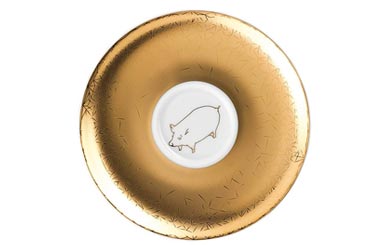






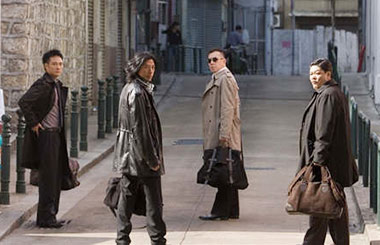






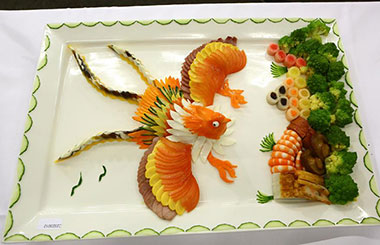


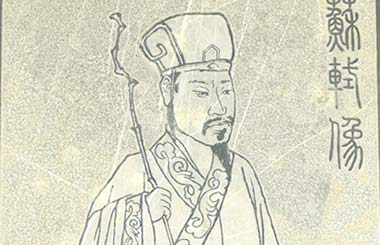
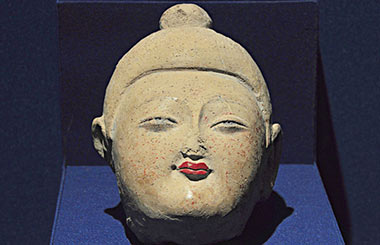



 Raymond Zhou:
Raymond Zhou: Pauline D Loh:
Pauline D Loh: Hot Pot
Hot Pot Eco China
Eco China China Dream
China Dream China Face
China Face





